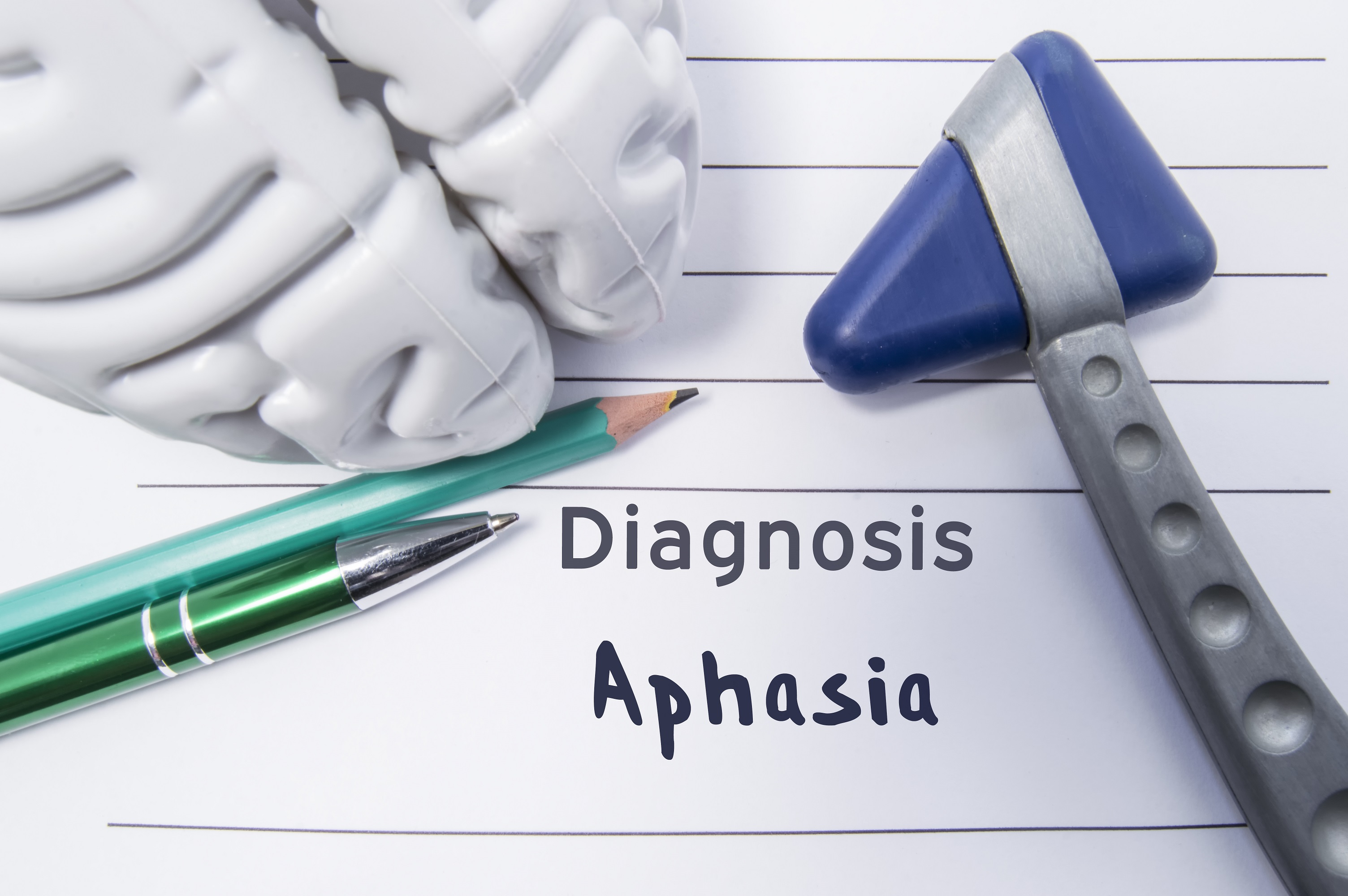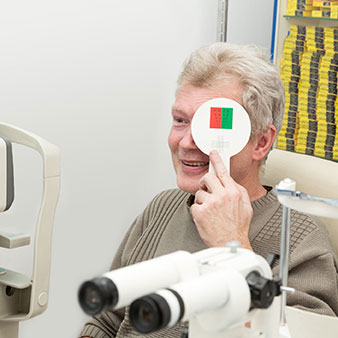Can Speech Therapy Help with Aphasia?

April 11, 2022
In March 2022, actor Bruce Willis announced that he has been diagnosed with aphasia, a condition that results in loss of language skills — including the ability to express and understand language, as well as read and write. Willis announced that he was stepping away from his acting career due to the condition’s impact on his cognitive function and ability to communicate.
But until Willis’ announcement, many people had never heard of aphasia, which affects approximately 2.5 million Americans — including approximately 70,000 New Jersey residents.
Kristie Soriano, MS/CCC-SLLP, Clinical Director of Speech at JFK Johnson Rehabilitation Institute who has 37 years of experience caring for people with aphasia, provided answers to frequently asked questions about the condition and its treatment.
What is aphasia?
Aphasia is the loss of the ability to speak, comprehend speech, read or write. It is caused by damage to areas of the brain that are responsible for language. For most people, the areas that control language are located on the left side of the brain.
There are several different types of aphasia that are caused by damage to specific areas of the brain and have distinct symptoms. Depending on the type of aphasia and the affected area of the brain, people may have trouble with:
- Writing down words
- Finding words when speaking
- Recognizing objects and remembering their names
- Understanding speech or written text
- Mixing up similar-sounding words
- Saying “no” when they mean to say “yes”
- Responding to open-ended questions
“People with aphasia have something to say, but no easy way to say it,” says Kristie. “Aphasia robs people of their ability to communicate, which can isolate them from family and friends.”
What causes aphasia?
The most common cause of aphasia is stroke, which can deprive the brain’s language centers of blood flow that leads to brain cell damage and death.
“Twenty-five to 40 percent of people who have a stroke experience aphasia,” says Kristie. “After the worst is over and they survive the stroke, people with aphasia find that they just can’t grab the words they are looking for.”
Other causes of aphasia include:
- Progressive neurological disorders, such as dementia and Alzheimer’s disease
- Brain tumors
- Traumatic brain injuries
- Brain infections
“Although it is normal to have some difficulty with finding the right words — especially as people age — people with aphasia experience more severe symptoms, and they can often be tied to another medical condition.”
How is aphasia treated?
During speech therapy, speech-language pathologists help people with aphasia develop new strategies to manage the symptoms of their condition.
“We identify each patient’s strengths and build on that,” says Kristie. “If writing things down is easier than speaking, for example, we focus on using strategies that involve writing.”
Each patient’s treatment goals are tailored to the cause of their condition, and speech-language pathologists collaborate with neurologists and other medical professionals when developing a treatment plan.
A patient who has aphasia caused by a stroke, brain injury or brain tumor may be able to achieve complete or partial recovery after receiving treatment. As a result, they may focus on recovering as much speech and language ability as possible. However, a person with aphasia caused by a progressive neurological disorder such as dementia may focus on maintaining language abilities as their condition worsens.
“With progressive conditions, each person experiences loss of language at a different rate and the symptoms can be different for everyone,” says Kristie. “Our goal is to focus on the positive by helping people hold on to their language abilities for as long as possible — particularly those abilities related to activities they most enjoy, such as reading or journaling.”
How are loved ones involved in aphasia treatment?
When a patient is diagnosed with aphasia — especially if it is related to a progressive condition — Kristie says she works with the patient and their loved ones to improve communication by developing strategies to assist with word finding and retrieval.
“When a family member asks someone with aphasia what they want for breakfast, it may be difficult for them to find the words to respond to such an open-ended question,” says Kristie. “One strategy for loved ones might involve changing the way they ask questions while still offering choices, such as ‘Would you like eggs, cereal or pancakes for breakfast?’”
Asking “yes/no” questions is another way family members can tailor communication to assist people with aphasia.
If you or a loved one experiences symptoms of aphasia, getting a diagnosis and starting treatment early can help patients and families maintain or improve their ability to communicate by incorporating effective coping strategies into their lives.
“All these years, I’ve never had a patient leave treatment without an improvement in their ability to communicate,” says Kristie. “We want people with aphasia to know that hope is not lost.”
Next Steps & Resources:
- Meet our Experts: To make an appointment with a doctor near you call 800-822-8905 or visit our website.
- Learn about speech therapy at Hackensack Meridian Health.
The material provided through HealthU is intended to be used as general information only and should not replace the advice of your physician. Always consult your physician for individual care.






